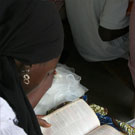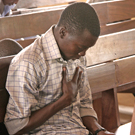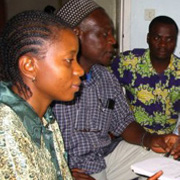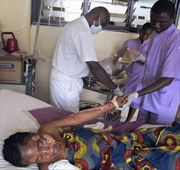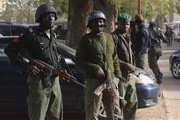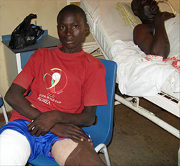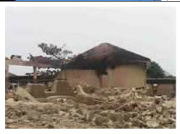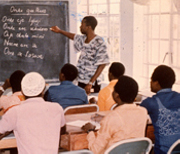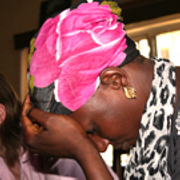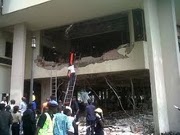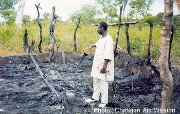 |
| (Cover photo: Boko Haram. Story photo: Burned out homes. Images courtesy Christian Aid Mission) |
Boko Haram has battled the government since 2009 in an effort to impose Islamic law on majority-Muslim northern Nigeria. It's been a bloody fight. More than 3,000 people have been killed in Boko Haram-related violence, including hundreds in government counter-insurgency operations.
With the recent uptick in violence, the military imposed a 24-hour curfew in 11 parts of the northeastern city of Maiduguri, the home base of the Boko Haram.
A state of emergency is also currently in force in Adamawa, Yobe, and Borno states. Brittany Tedesco is the Africa Director for Christian Aid Mission, your link to indigenous missions. She explains, "The curfew is from 6 in the morning till 6 in the evening. That, as you can imagine, is really affecting their work."
On Friday, U..S Secretary of State John Kerry urged the Nigerian army to show restraint and not violate human rights as it pursues the militants. However, the rebels are not so circumspect.
Christian Aid-supported Missionary Crusaders Ministries in Nigeria have had to respond to the constant threat. Ministry leader Gabriel Barau writes, "In as much as our missionaries remain committed to sharing Christ with the unreached, we need your prayers and support." Just last month, says Tedesco, "Terrorists set fire to three of the homes/mission bases of the missionaries that [Barau] is working with."
Discouragement is one major challenge. Fear is another. The attacks were personal. "The missionaries are currently staying at the mission school of missions until [Barau] can provide accommodation for them. On top of that, there's the follow-up and the discipleship that he provides to new believers."
Barau is scrambling to get the survivors of the fire resettled, Tedesco adds. "Thanks to help of our donors, Christian Aid was able to send some funds to rebuild these homes/mission bases.
"
Each simple home, which doubles as a place for cell group meetings and discipleship of new converts, costs $3,500. The need is especially urgent now as the rainy season is about to begin and will halt construction.
Since 1983, Barau has trained and sent out missionaries to share Christ with the unreached of Nigeria. The ministry has grown, in spite of the harassment and persecution coming from the Boko Haram. Despite being targeted, prayer cover has been their mainstay. Tedesco says, "None of these missionaries have been harmed. There are 183 missionaries working with this ministry. None of them has been harmed or killed."
Many of their mission fields are located in the country's Muslim northern region, where the majority of Boko Haram attacks have occurred. However, Tedesco says, "This ministry is committed to moving forward despite the danger that they're in right now. They've reached two new tribes with the Gospel."
Safety IS a concern. Christian Aid has been working closely with this ministry to help them relocate their headquarters. "The headquarters office that they're renting is located in Adamawa state, where Boko Haram has been striking repeatedly." The project has been a long time in coming when the risk of attack is imminent.
Still, God has been faithful. Tedesco says, "We are in the home stretch, praise the Lord! Right now, all we need is the windows, the doors, and flooring." The team will move into this office as soon as the roofing is completed.
Please pray for wisdom for Gabriel Barau as he leads the work of Missionary Crusaders Ministries, and pray that terrorized Nigerians will experience a return to peace in their homeland. "Continue to pray for the Lord's hand on this ministry, to give discernment to the ministry leader as to how to move forward in the safest possible way, and also just for protection for these brave missionaries who are risking it all to remain on their fields."
